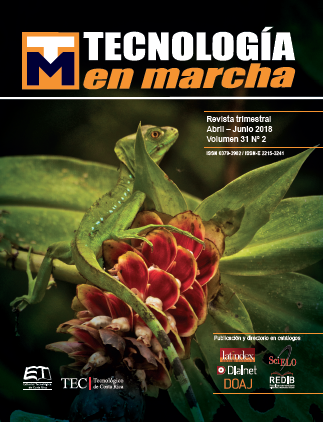Effects of the application of Trichoderma asperellum and its culture filtrate on the growth of onion seedlings
Main Article Content
Abstract
The application of Trichoderma spp in onion has focused mainly on the fight against diseases such as Sclerotium cepivorum, its principal phytopathological problem. With the application of biocontrollers, we seek to reduce the use of chemical fungicides and to prepare the plant from the first stages of the seedbed with the application of culture filtrate that strengthen and colonize the root providing a protection against the attack of pathogens. The objective of this research was to determine the effects of a native strain of Trichoderma asperellum and a secondary metabolite culture filtrate on the growth of onion seedlings (Allium cepa). The research was made in two different years: 2015 and 2016. Each treatment consisted of 2 trays, each with 288 plants: T 1 = T. asperellum prepared at 100%, T2 = T. asperellum prepared at 50%, T3 = Vitavax commercial product ®, T4 = Control, T5 = 100% filtered and T6 = 50% filtered. In 2015 were tested only the first four treatments. By 2015, it was observed that T1 is the best treatment, as it showed a greater effect on elongation and dry weight as well as on fresh root weight and aerial dry weight. In the elongation of the root for 2016, the T2, T1 and T6 treatments presented the largest sizes. Based on the observed, treatment of 50% filtrate has the same effects as treatments T1 and T2 in all variables.
Article Details
Los autores conservan los derechos de autor y ceden a la revista el derecho de la primera publicación y pueda editarlo, reproducirlo, distribuirlo, exhibirlo y comunicarlo en el país y en el extranjero mediante medios impresos y electrónicos. Asimismo, asumen el compromiso sobre cualquier litigio o reclamación relacionada con derechos de propiedad intelectual, exonerando de responsabilidad a la Editorial Tecnológica de Costa Rica. Además, se establece que los autores pueden realizar otros acuerdos contractuales independientes y adicionales para la distribución no exclusiva de la versión del artículo publicado en esta revista (p. ej., incluirlo en un repositorio institucional o publicarlo en un libro) siempre que indiquen claramente que el trabajo se publicó por primera vez en esta revista.

